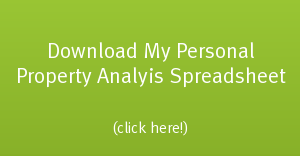
Recently, one of my favorite online financial gurus, Grant Cardone, put out a video that exclaimed, “Buying a house is for suckers!”
Before that, he wrote here on Entrepreneur that, “Unless you have 20 million bucks in the bank, in cash, you have no business buying a house.”
It’s not the first time I’ve heard him say this, nor is he the only financial guru peddling this message today. Author James Altucher has described time and time again how he’s refused to own a house. Remit Sethi, the blogger behind the I Can Teach You to Be Rich brand, often cautions readers to be wary of buying real estate. Even Robert Kiyosaki, author of Rich Dad Poor Dad, has become famous for informing the public that a home is a liability, not an asset.
Related: An Investor Answers: “Should I Buy a House for Myself or Purchase an Investment Property?”
Yet, for the majority of Americans, home ownership is clearly a part of the American Dream. Even a guy like me — a landlord for the past decade — has had to stop and ask if there is any truth to this. Is owning a home truly for suckers, as Cardone said? Or was the headline over his Business Insider video just click bait?
Here, my goal is to explore the the three primary reasons Cardone and other financial gurus typically use for arguing against buying a house — and offer a counter-argument.

1. It depends where you live.
Should you own your home? Maybe. But, maybe not. Real estate is expensive. In fact, that’s one of the primary reasons a lot of homeowners and landlords fail.
Besides the mortgage payment, the owner of the house also has to fix the plumbing, replace the roof, shovel the snow, paint the walls, replace the carpet — you get the idea. There are a lot of hidden expenses above and beyond the cost of the mortgage to consider, and the older the property is, the greater those expenses tend to be.
However, in many areas, it is still cheaper to own than rent. For example, in my town, I can purchase a decent single family home for around $75,000, which works out to a mortgage of around $500 per month, with taxes and insurance included. That same house would rent for about $1,000 per month. So, does the average homeowner of a $75,000 house have $500 in house-related expenses each month? Not unless he or she owns a terrible home.
Therefore, where I live, at least, it makes a lot more financial sense to own versus buy — even with the repairs and maintenance required. Of course, in some areas, it might be far less expensive to rent than to own, while in larger cities such as New York, San Francisco, Miami and other cities,the opposite is often true. All these facts add up to why you shouldn’t take blanket advice from the internet when you make your decisions.

2. Owning a house makes you immobile — or does it?
This was the primary reason Cardone put forward for his argument against buying a house. “To make money today, you need mobility,” he wrote.
Related: Buying a House: The Ultimate Guide to Purchasing Your First Property
Personally, I found that weird — because I’ve lived in the same county for 10 years, and I’ve made money. Lots of it.
So, do you truly need mobility to make money? Sure, mobility is fun. I remember “mobile life.” Living out of a suitcase, sleeping on friends’ couches, eating leftover cold mac ’n cheese I found in the back of the fridge. All hail mobility!
But, then, a funny thing happens: We grow up. We start having responsibility for things in our life. We actually want some kind of stability. We want to raise our kids in the same place. We don’t want to lose the friendships we have with our neighbors. We want to avoid having to move again and again and again because of someone else’s decision.
When you rent a home, yes, you can leave when your lease is up, which might be six or nine months down the road. Or, if you sell your house, you can be out in a month or two. Even better, if you need to move suddenly, you can just rent your house out to a tenant and — gasp — move! Now, you are building wealth through rental properties and you are free to be mobile — whatever that means.
3. Is real estate a bad investment?
Many financial bloggers love to point out that real estate values climb at a pace slower than that of stocks. Okay, that might be true, but it doesn’t tell the whole story.
As famed economist and Nobel prize winner Robert Shiller has pointed out, using the S&P/Case-Shiller Index, home values over the past 100 years have appreciated, on average, at nearly the same rate as inflation: around 3 percent.
So, should we immediately reject buying a house because it doesn’t appreciate fast enough?
Of course not. Real estate appreciation is just one of several benefits to owning property. When you own real estate, you don’t usually pay 100 percent cash for it. Instead, you obtain a loan and use a small down payment to take possession. That way, although the price of your property may increase only 3 percent, your actual return on investment could be significantly higher
(Continue reading on BiggerPockets…)
P.S. looking for hard money loans in California? Be sure to check out my friends over at northcoastfinancialinc.com. They have very competitive rates, can fund within a week and specialize in fix and flip loans and other hard money loans.
P.S. Looking for more real estate investing knowledge? If you are interested in a top-notch course to help you understand the nuts and bolts of creative real estate investing, I would like to recommend Ben Leybovich's Cash Flow Freedom University. Ben is a close friend and has been my trusted adviser for years. He's a smart guy and CFFU is pretty awesome. The course is waitlisted, but while you wait for an opening Ben will send you tons of FREE content. Seriously. Click here to check it out.
(yes, that's an affiliate link!)
 If this is your first time here at Real Estate In Your Twenties.com - welcome!
If this is your first time here at Real Estate In Your Twenties.com - welcome! 





